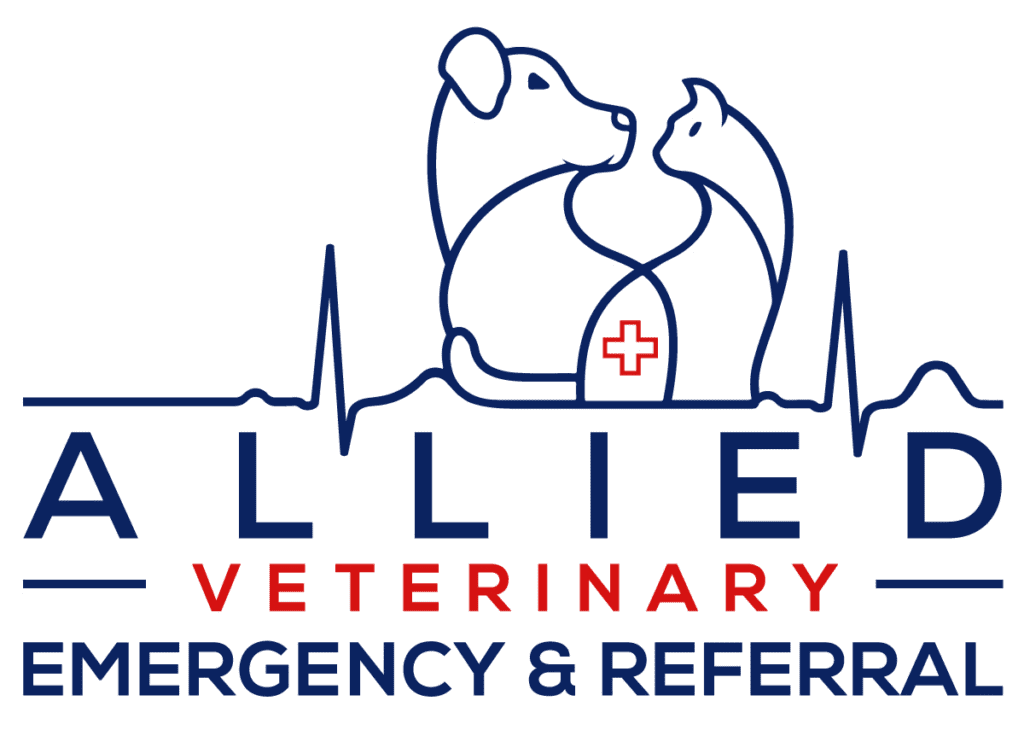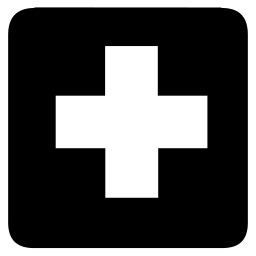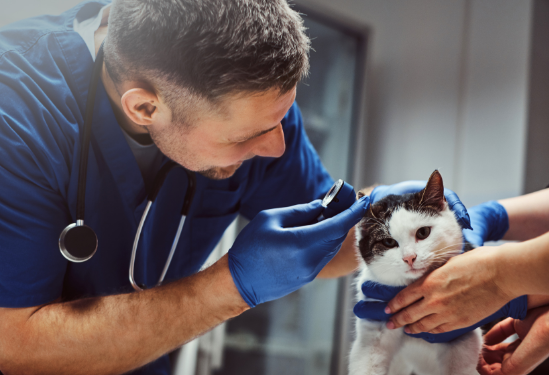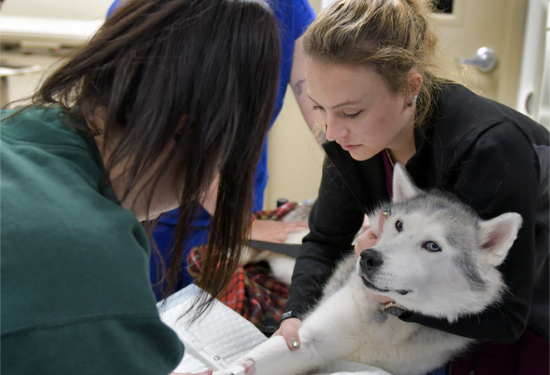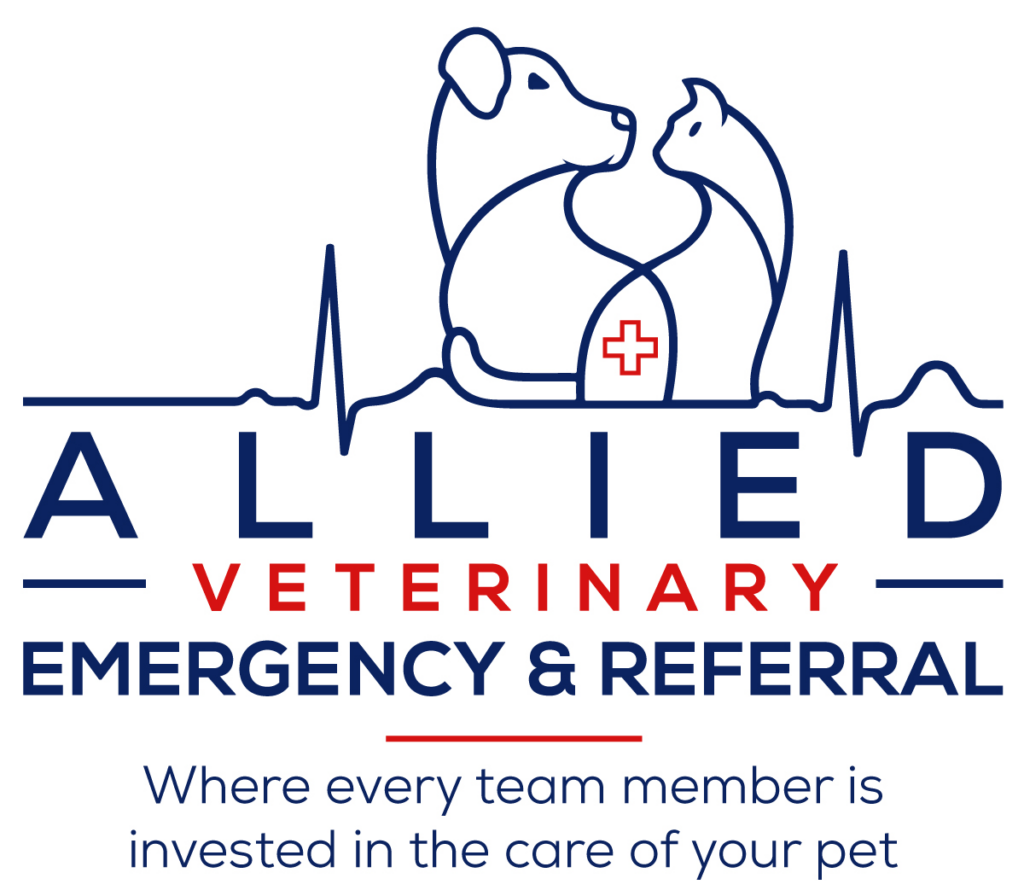Consultations with Michelle Custead, DVM, MS, DACVIM (Oncology) can be scheduled by calling our Brooklyn Park hospital at (763) 463-9800 or emailing oncology@alliedervet.com.
- Immunotherapy
- Conventional chemotherapy
- Targeted therapies
- Palliative care and pain management
Advanced diagnostics include: Biopsy, cytology, bloodwork, digital X-ray, ultrasound, 128-slice CT scan
Dr. Chiu has a distinguished resume including many awards and research publications. Learn more about him here along with our other specialists.
Brooklyn Park
View Details
Minneapolis
View Details
Eau Claire
View Details
Rochester
View Details
Eden Prairie
View Details
Surgery available in Brooklyn Park AND Eden Prairie – For surgical consultation, please call (763) 463-9800.
Junie’s Case – Brooklyn Park
We’d like to thank Croix Valley Veterinary Hospital in Hudson, Wisconsin for referring Junie and her family to us in Brooklyn Park. Dr. Sara Losinski and the surgical team repaired her fractured elbow and despite having to wear an e-collar afterwards, she is happy and recovering nicely. We can safely say she’s back to her normal mischievous ways.
A: We have tried to simplify accessing care when it’s urgent, but not necessarily life-threatening.
At our largest hospital, Brooklyn Park, we have a separate team assigned to urgent care patients daily from noon-midnight. Walk-ins are always welcome, but appointments can be scheduled for urgent care at https://calendly.com/park-alliedervet/45.
If an urgent care case is deemed emergent, our ER team will take over and admit the patient to the hospital for treatment and/or monitoring. A seamless transfer will take place and continuity of care is smooth and efficient. As always, you will be informed of your patient’s arrival and a discharge summary will be provided.
Pet owners appreciate the convenience of self-scheduling and generally shorter wait times.
Note: Urgent care cases can still be seen at any Allied location through emergency services, on a walk-in basis.
Prioritize continuing education, build strong communication skills, enhance technical skills, network with professionals, and attend industry events to stay updated and advance your career.
Here’s a more detailed breakdown of tips for veterinary technicians:
Professional Development & Career Advancement
- Continuing Education: Stay current with the latest advancements in veterinary medicine and technology through continuing education courses and certifications.
- Specialization: Consider specializing in a specific area of veterinary medicine, such as emergency and critical care, anesthesia, or internal medicine, to enhance your skills and career prospects.
- Networking: Connect with other veterinary professionals through professional organizations, industry events, and online forums to build relationships and learn from others.
- Professional Involvement: Participate in professional organizations like the American Veterinary Medical Association (AVMA) or the National Association of Veterinary Technicians (NAVTA) to stay informed about industry trends and contribute to the profession.
- Advocate for the Profession: Share your experiences and knowledge with others to promote the importance of veterinary technicians and the value they bring to the veterinary team.
- Seek Mentorship: Look for experienced veterinary technicians or veterinarians who can provide guidance and support as you navigate your career.
Skills & Knowledge
- Technical Skills: Master essential technical skills such as administering medications, performing diagnostic tests, and providing nursing care.
- Communication Skills: Develop strong communication skills to effectively interact with clients, veterinarians, and other members of the veterinary team.
- Record Keeping: Maintain accurate and detailed patient records to ensure continuity of care and facilitate effective treatment plans.
- Client Communication: Learn how to effectively communicate with clients, especially during difficult situations, to build trust and rapport.
- Animal Handling: Develop proficiency in safely and humanely handling animals of various species and temperaments.
- Problem-Solving: Learn to identify and address problems quickly and effectively, especially in emergency situations.
Well-being
- Prioritize Self-Care: Recognize the emotional and physical demands of the job and prioritize self-care to prevent burnout.
- Seek Support: Don’t hesitate to seek support from colleagues, mentors, or therapists when facing difficult situations or challenges.
- Maintain a Healthy Work-Life Balance: Strive to maintain a healthy work-life balance to avoid burnout and improve overall well-being.
- Practice Compassion: Remember to approach every situation with compassion and empathy, both for animals and their owners.
Bottom Line: Don’t wait to be taught – go out and learn, find a passion and nurture your areas of interest. There is a lot of FREE CE available. And, you can ask your employer to help you find the best programs to build your knowledge and therefore value to the practice.
